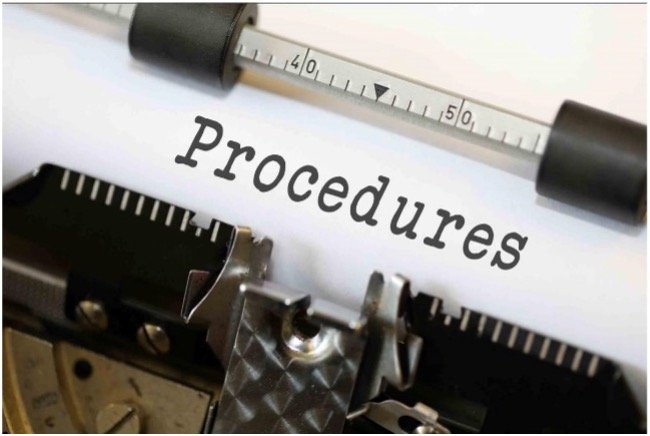Today, September 22, the Court issued a new version 3.1 of its Order Governing Proceedings—i.e., the default procedural reference point for all parties involved in a patent case before Judge Albright. We’ll tackle the major changes below, and in a companion post we also address the Court’s very substantial update to its Standing Order Regarding Notice of Readiness for Scheduling Conference in Patent Cases.
The most notable updates to the OGP are:
- Meet-and-Confer before the Case Management Conference: OGP v3.0’s previous formal requirement that the parties confer “[n]ot later than 3 days before the CMC” about the scheduling order and discovery limits has been abolished, having effectively been superseded as addressed in the updated procedures to meet-and-confer and then jointly file a Case Readiness Status Report (CRSR).
- Discovery Disputes: Before any motion to compel may be filed, the Court previously required—and still requires—that parties “arrange a telephone conference with the Court to summarize the dispute.” OGP v3.1 now explicitly requires that these “[s]ummaries shall be neutral and non-argumentative” (page 4)—good words for all practitioners to live by!
- Claim Construction: A minor update to “Claim Construction Issues” clarifies that the maximum number of terms to be construed is to be allocated by “sides,” rather than “parties”: i.e., A consolidated Markman proceeding involving multiple unrelated defendants does not grant each of those defendants license to request a non-overlapping set of terms to be construed. (Though note that these limits are “presumed” only. As in all things, parties may always request that the Court depart from its default procedures for good cause.)
- Technology Tutorials: The Court has clarified that technology tutorials are strictly “optional,” and has otherwise lightly tweaked the language regarding the content and timing of the tutorial, and the procedures to schedule them (page 5).
- Conduct of the Markman Hearing: The Court notes that, following receipt of its preliminary claim constructions (which though not specified in the OGP, typically occurs the day before the Markman hearing), for purposes of conducting the Markman hearing argument, “the party opposing the Court’s preliminary construction shall go first. If both parties are unwilling to accept the Court’s preliminary construction, the Plaintiff shall typically go first” (page 5).
- Contacting the Court: OGP v3.1 promulgates a default email address to be used should the parties wish to contact the Court, TXWDml_LawClerks_JudgeAlbright@txwd.uscourts.gov (page 6, General Issues, ¶ 2).
- Scheduling Trial: OGP v3.1 explicitly provides that “the Court will not move the trial date except in extreme situations” and that “[t]o the extent a party believes that the circumstances warrant continuing the trial date, the parties are directed to contact the Court to request a telephonic hearing” (page 6, General Issues, ¶ 5). The significance of this language relates to the PTAB’s ability to deny an IPR petition on discretionary grounds under Apple v. Fintiv: As an instructive example of how this may matter, see the Decision Granting Request for Rehearing and Instituting Inter Partes Review in Sand Revolution II, LLC v. Continental Intermodal Group-Trucking LLC, IPR2019-01393 (June 16, 2020; designated as precedential July 13, 2020), in which the PTAB on reconsideration determined to proceed with an IPR in part on the grounds that OGP v3.0’s “express inclusion of the qualifier ‘or as available’ for each calendared trial date of its evolving schedule … indicates a continuing degree of recognized uncertainty of the court’s schedule by the court.” Such “uncertainty” has now arguably been affected by the updated language of OGP v3.1.
- Courtesy Copies: OGP v3.1 updates the procedures for submitting courtesy paper and electronic copies of Markman, summary judgment, and Daubert briefing and select supporting documents to chambers (page 6, General Issues, ¶ 8; see also App’x page 8-9). Of note—and also addressed in our companion post on the Notice of Readiness and CRSR—OGP v3.1 for the first time explicitly contemplates involvement of a technical adviser in the Markman process. (For more on this topic, see the first exchange in Part 2 of Mark’s Q&A with Judge Albright.)
- Markman Procedures: OGP v3.1 adds an explicit requirement that at least one week before filing a responsive claim construction brief, the parties must “disclose the identity of any rebuttal expert witness they may rely upon in their response brief with respect to claim construction or indefiniteness,” including “identify[ing] the scope of the topics for the witness’s expected testimony” (App’x page 8).
Doubtless the full effect of these updates will become clearer as the Court conducts business under OGP v3.1 going forward. In the meantime all practitioners appearing before Judge Albright would do well to familiarize themselves.
* * *
(Note: The authors thank Timothy F. Dewberry of Dechert LLP for additional consultation regarding this update.)
* * *

